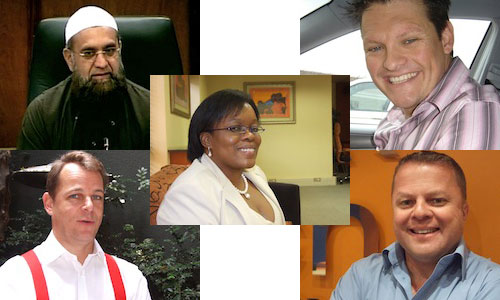SA’s technology industry grabbed more public attention in 2009 than it has in years. In spite of the recession, the news flow has been constant, and not all of it has been bad.
Undoubtedly, the biggest story of the year on the business front was Telkom’s sale and unbundling of its 50% stake in cellular group Vodacom.
The deal saw Vodacom list on the JSE — in spite of a brainless court bid by the Independent Communications Authority of SA (Icasa) to stop it — and resulted in Vodafone investing more than R20bn in the country.
The deal left a newly “naked” Telkom without a mobile arm to rely on. The fixed-line operator is now building its own mobile network, and this should lead to lower prices for consumers in 2010 as competition intensifies.
The mobile operators have been keeping journalists writing feverishly throughout the year. MTN’s lengthy talks with India’s Bharti Airtel came to naught. And let’s not forget the mobile interconnection debate — arguably the story of the story in telecoms.
Then there was the appointment of a new communications minister, Siphiwe Nyanda, who has achieved more in his first six months in office than his predecessor, Ivy Matsepe-Casaburri, managed in the nearly 10 years she was minister.
With all this and much more in mind, TechCentral is proud to introduce the inaugural technology “Newsmakers of the Year” awards, presented to individuals we believe had the biggest impact on SA’s technology sector.
These are the people who made the headlines in 2009. And, for the most part, they also happen to the people who made a real difference in the technology year that was. Part 2 follows on Friday. — Duncan McLeod, Editor, TechCentral
The chairman of parliament’s portfolio committee on communications, Ismail Vadi aptly demonstrated the power that MPs have to effect change in SA’s telecommunications industry. He oversaw a high-profile public inquiry into high mobile interconnection fees that eventually resulted in the operators agreeing to cut the fees from R1,25/minute during peak times to 89c/minute. But the more important work that Vadi did in 2009, and the reason he makes TechCentral’s newsmakers list, is the sterling work he did exposing the poor leadership at the Independent Communications Authority of SA (Icasa). There are serious structural and management problems at Icasa, and we hope Vadi will continue shining a spotlight on the regulator in 2010. Picture credit: SABC
Reichelt almost didn’t make our list but put up his hand at the last minute. Since May, when he was appointed as CEO of SA’s third mobile operator, he has shunned the media spotlight. That all changed earlier this month when he announced that Cell C’s shareholders would be stumping up about R5bn for infrastructure investment in 2010. The big news was that the network provider had finally decided to build a 3G network. And not just any 3G network: it will leapfrog the technologies used by Vodacom and MTN and roll out an “evolved high-speed packet access”, or HSPA+ network, capable of delivering very high speed wireless broadband services. It’s a brave move and will be one the big stories of next year. For that, Reichelt deserves to be on our list.
The feisty new director-general of the department of communications is a breath of fresh air. Her predecessor, Lyndall Shope-Mafole, committed several serious blunders, not least of which was her decision to try to involve African governments in the construction of a high-capacity cable system along the east coast of Africa. Mohlala appears more inclined to leave the free market to get on with the job, and to intervene only where there are real signs of market failure. She has already made it clear she’s not going to be in the industry’s pocket book, and has signalled her department’s determination to do something about SA’s high telecommunications costs. In many ways, Mohlala complements perfectly the hard-driving Siphiwe Nyanda, the minister of communications. Let’s just hope she can continue to resist populist measures, like price controls, and that she really does give the market the opportunity to prove itself.
This year finally saw the start of a broadband price war (of sorts). Afrihost, led by CEO Gian Visser, got things off to a hot start when it slashed the price of broadband on digital subscriber lines to just R29/GB, using its advertising and marketing budget to sell bandwidth at below cost. In doing so, it set the new standard for broadband pricing in SA. Not to be outdone, several other small service providers, including Screamer Telecoms and DigiChilli, followed suit. Though the big telecoms providers — Telkom, MTN and Vodacom — haven’t cut their prices, pressure will grow in 2010 for them to do so as smaller players like Afrihost begin to eat away at their market share.
He’s quickly gaining a reputation as the bulldog of SA telecoms. When the ECN Telecommunications CEO sinks his teeth into something, he doesn’t let go. Holdsworth virtually single-handedly tackled the mobile operators over interconnection fees, lobbying the regulator, the media and politicians over the rates. As a result of this pressure, the cellphone providers reluctantly agreed to cut the rate in March 2010 and to subject themselves to further rate cuts once Icasa has finalised the frameworks necessary to regulate the tariffs. Now Holdsworth has plans to build a mobile network and is in talks with international operators.












